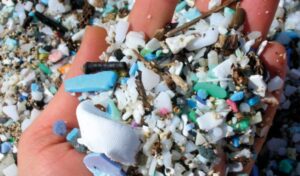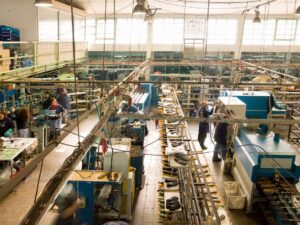- Regulatory Tools
- Circular Economy
- Government
- Government Policy
- Labelling
- Recycling
- Policy
- Strategy and Policy
- Take Action
- National
Aluminum cans now only recyclable accepted for deposit refunds in Nunavut
In April the Nunavut Liquor and Cannabis Commission (NULC) removed it’s bottle deposits on all products except for aluminum cans, the final day bottles were accepted for deposit refunds in the capital was July 31.
This has left some worried about seeing more bottles pile up in Nunavut’s landfills with there being fewer incentives to recycle plastic or glass bottles.
“It’s quite unfortunate really because these will just end up in a landfill unless people feel that it’s worth it to bring it back and not get any money for them,” said Susanna Fuller, vice-president of operations and projects at Oceans North.
This only adds to the waste management problems in Iqaluit and other communities she says.
Fuller also pointed towards the lack of recycling opportunities in Nunavut and the wider North, lacking the recycling infrastructure that exists in the south, as mentioned in an Oceans North report published in March of this year.
“A lot of the opportunities that are in the south like recycling don’t exist in the North,” said Fuller.
Because of that it’s not going to change the situation in the capital says deputy mayor Janet Brewster.
“We’re not recycling in Iqaluit but obviously it’s something on our minds, including plastics,” said Brewster.
She hopes the situation will change once the city’s new landfill and associated facilities are operational.
“When we move to our new landfill site we’ll be bundling and we’ll be capping off the old site and then waste will be bundled and stored differently,” she said.
The new landfill site was originally expected to be constructed and in use by 2020 – when the City said the current dump would run out of space – but the date it will be ready has since been amended to sometime in 2023.
Who’s responsible for recycling?
The onus on recycling should fall on the producers of recyclable goods, Fuller says.
“They’re not (responsible) and that is a big problem. The other point we made in our report, the Arctic Policy Framework, management is not excluded. It’s a real oversight and ideally there would be something with an Inuit-Crown partnership in the Arctic Policy Framework.”
“We need to get the companies (to recycle), what the companies are bringing up and selling, whether it’s wine bottles, beer bottles, pop bottles, anything that could be recycled. Ideally companies bringing it up would be required to bring it back.”
More attention in general is needed with regard to waste in the Arctic, said Fuller, given the limited options available across the territory.
“We should be paying more attention to waste in the Arctic because there’s no other facility than an open landfill in most communities.”
The Southeast Nunavut Company, which accepts recycling deposits in Iqaluit will only be accepting cans for the “foreseeable future,” according to staff.
Request for comment was made to Nunavut’s department of finance but messages could not be returned as of press time.
Original story can be found here at Nunavut News.



